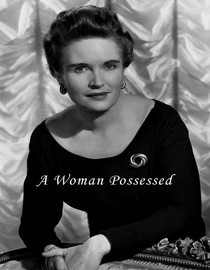date newest »
newest »
 newest »
newest »
 I think you're right-- readers of literary fiction ARE more likely to forgive a weak, passive, or flawed hero--but not necessarily.
I think you're right-- readers of literary fiction ARE more likely to forgive a weak, passive, or flawed hero--but not necessarily. One of the interesting things I've found while looking at Goodreads is that the great books--the CLASSICS--do not necessarily have stellar ratings. For example, To Kill a Mockingbird, or A Tale of Two Cities, which I will FREELY acknowledge to be better than anything I've written, have sort of appalling low scores. A lot of the time, it's because people FORCED to read them, (students very often) read the book and then HATE it because it doesn't have the tropes and the types they've come to expect in fiction that's purely entertainment. (Although I like to think that if we're doing our job in genre fiction, NOTHING is purely entertainment, that's beside the point!) People will subjectively hate a book that has an ending or a type that is not necessarily popular. If you're going to explore that type, trope, or motif, you're going to have to brace yourself for the hits--and know you were striving to do something greater than just a type, trope, or motif. (I've done this a couple times. Not easy. Never easy. Public opinion is HARD to buck!)
 As readers, we gobble up the work of authors we like, whether literary or genre fiction, but there does seem to be a difference. In genre fiction, which I can only liken to big brand tea, we expect the first cup to taste like the last one. The more genre writers deviate from the expectation, the less likely a genre reader, one who reads a specific genre for a reason, is going to feel it.
As readers, we gobble up the work of authors we like, whether literary or genre fiction, but there does seem to be a difference. In genre fiction, which I can only liken to big brand tea, we expect the first cup to taste like the last one. The more genre writers deviate from the expectation, the less likely a genre reader, one who reads a specific genre for a reason, is going to feel it. For me genre romance is homeopathy. I expect it to make me feel a certain way. I've been thinking about that a lot lately actually, because as I've grown or shrunk or whatever as a writer, I find myself wanting to explore more obscure relationships. If I veer from well trodden paths I hear about it. Or I don't hear about it and I'm not sure which is worse. :D
I'll be looking for and reading whatever you write Maestro, as always.
 Lou wrote: "Oh those old movies where the characters talked, and not just in quotable one-liners!
Lou wrote: "Oh those old movies where the characters talked, and not just in quotable one-liners!I haven't seen this movie, but I wonder if the husband is anything more than an unavoidable plot device.
I ca..."
Yeah, sometimes in order to explore a certain dynamic some of the characters just have to operate like ciphers or symbols. Because real people are so darned predictably unpredictable. And they do have that bad habit of TALKING. ;-)





I think that is why your work resonates so much with me, it is very much character driven, your men can have a lot of darkness. I think that's what makes them so interesting.
Anyways, I may try and get this movie somewhere for when my mother comes to visit next month, it'll be interesting to see what she grumbles about now!